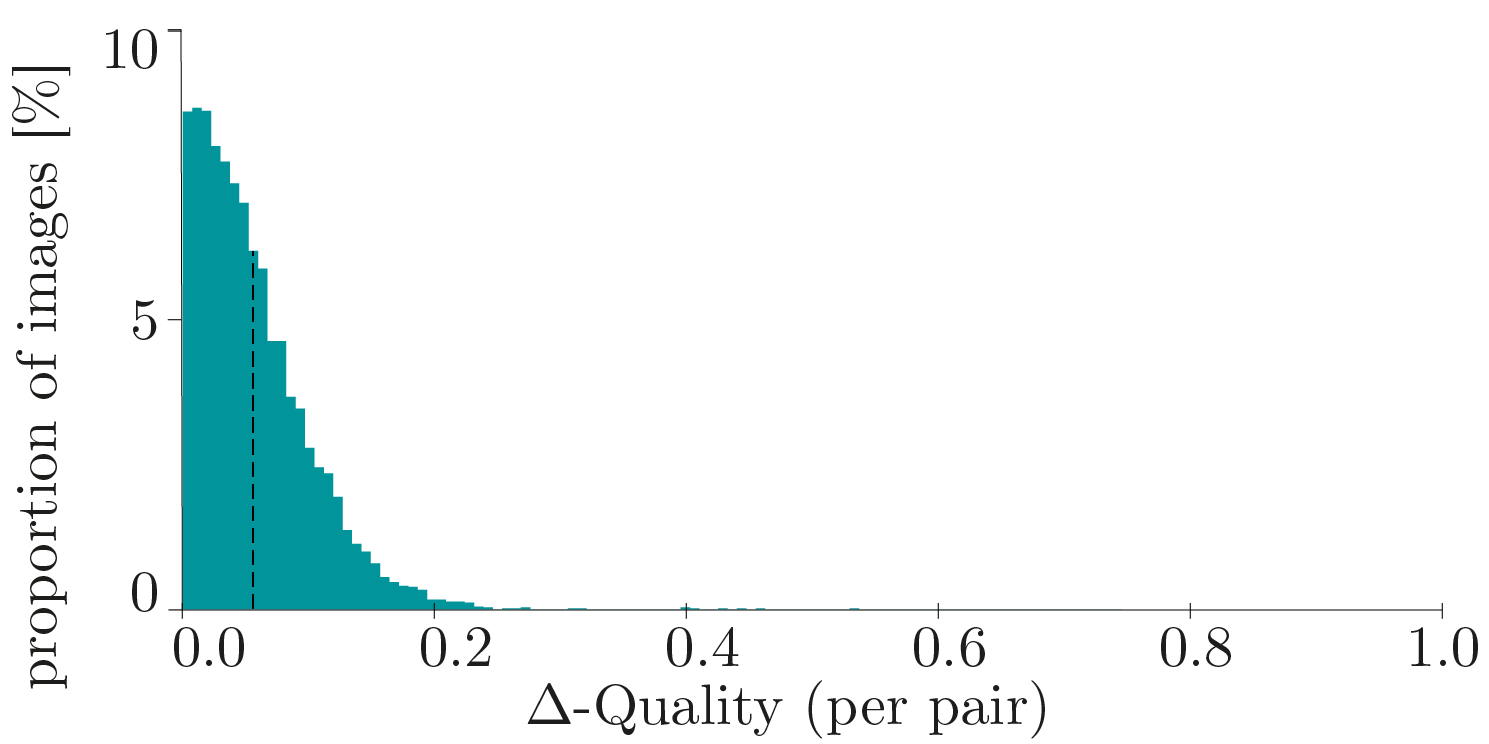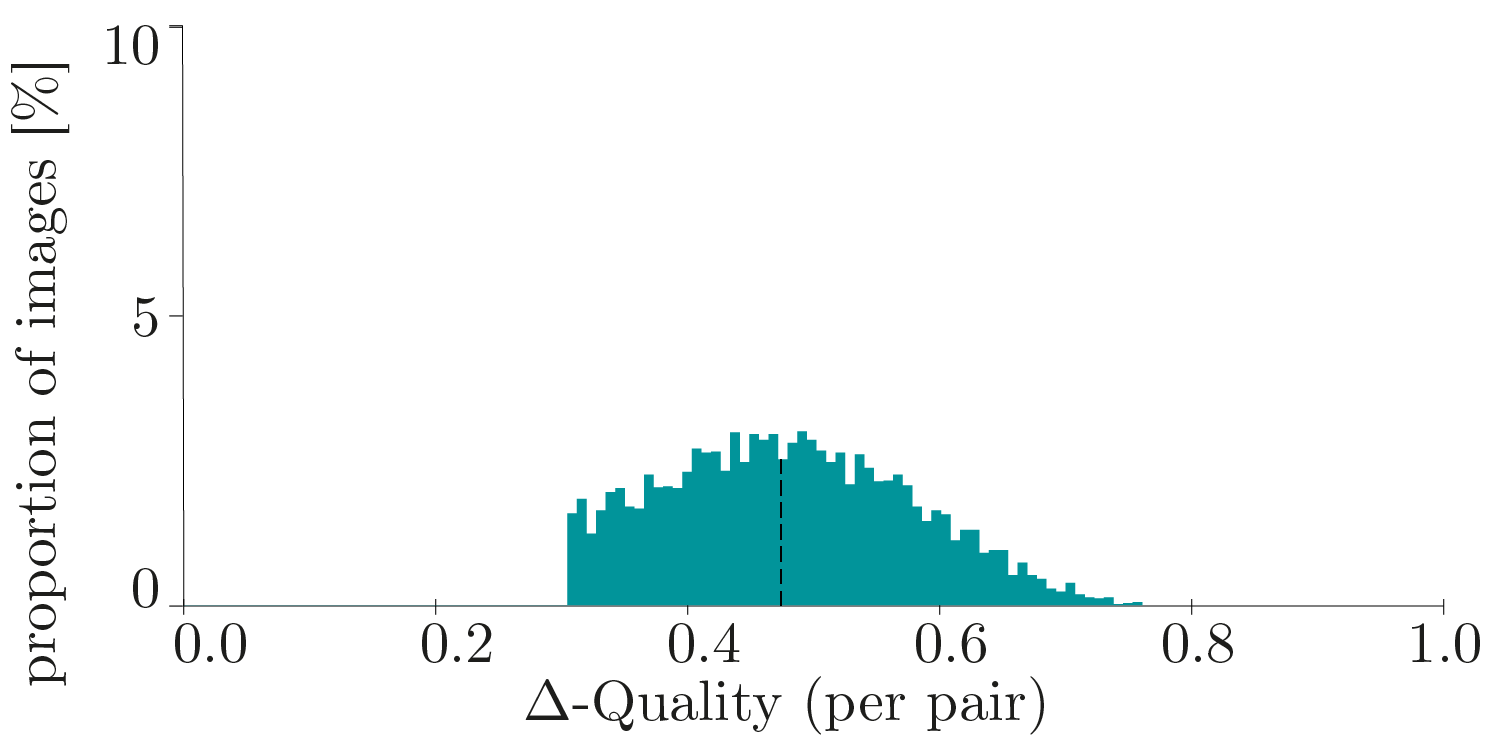Cross-Quality Labeled Faces in the Wild (XQLFW)
An evaluation protocol for face verification focusing on a large intra-pair image quality difference.
Real-world face recognition applications often deal with suboptimal image quality or resolution due to different capturing conditions such as various subject-to-camera distances, poor camera settings, or motion blur. This characteristic has an unignorable effect on performance. Recent cross-resolution face recognition approaches used simple, arbitrary, and unrealistic down- and up-scaling techniques to measure robustness against real-world edge-cases in image quality. Thus, we propose a new standardized benchmark dataset derived from the famous Labeled Faces in the Wild (LFW). In contrast to previous derivatives, which focus on pose, age, similarity, and adversarial attacks, our Cross-Quality Labeled Faces in the Wild (XQLFW) dataset maximizes the quality difference. It contains only more realistic synthetically degraded images when necessary. Our proposed dataset is then used to investigate further the influence of image quality on several state-of-the-art approaches. With XQLFW, we show that these models perform differently in cross-quality cases, and hence, the generalizing capability is not accurately predicted by their performance on LFW. Additionally, we report baseline accuracy with recent deep learning models explicitly trained for cross-resolution applications and evaluate the susceptibility to image quality. To encourage further research in cross-resolution face recognition and incite the assessment of image quality robustness, we publish the database and code for evaluation.
Example Images




Increasing the intra-pair image quality with







Copyright © 2021 - All Rights Reserved - https://github.com/martlgap/xqlfw
Template by OS Templates